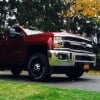2011 Tahoe / LMG Vortec Engine - oil flush/engine cleaner additive ok?
-
Similar Content
-
- 6 replies
- 397 views
-
- 4 replies
- 1,044 views
-
2001 silverado 1500 5.3L secondary air monitor won’t complete
By 01Silverado2wd,
- secondary air injection
- smog
- (and 3 more)
- 1 reply
- 1,932 views
-
- 3 replies
- 4,156 views
-
- 19 replies
- 1,914 views
-
-
Recently Browsing 0 members
- No registered users viewing this page.
-
Forum Statistics
246k
Total Topics2.6m
Total Posts -
Member Statistics
-
Who's Online 20 Members, 0 Anonymous, 1,494 Guests (See full list)
















Recommended Posts
Join the conversation
You can post now and register later. If you have an account, sign in now to post with your account.